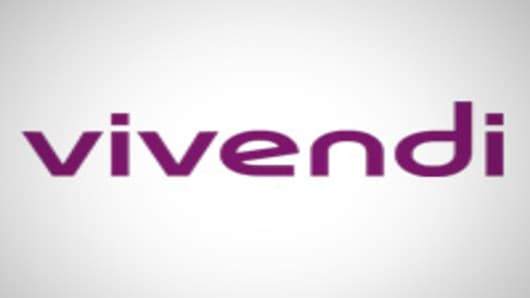Yet Vivendi suffers from an identity crisis, with its management on a seemingly perpetual quest for reinvention, and it has yet to shake off reminders of Jean-Marie Messier, a professed master of the universe who transformed the company a decade ago from its origins as a dull water utility, using debt to go on an acquisition spree.
Vivendi has signaled that it wants to shed its remaining stake in NBC Universal, the American media company formed after Mr. Messier’s profligacy resulted in disaster. That would clear the way for the formation of the next big American media giant: a potential fusion of NBC Universal with the cable company Comcast.
Analysts say it would make sense for Vivendi to sell, but they question the company’s strategy. Vivendi’s current chief executive, Jean-Bernard Lévy, eschews talk of “convergence” — the idea, championed by Mr. Messier, that digital technology would break down distinctions between different media, benefiting conglomerates capable of delivering a cornucopia of entertainment to living rooms.
Without such cross-fertilization, analysts wonder, what is the logic of keeping Vivendi’s various companies under one umbrella?
“Operationally they have done well, generally,” said Conor O’Shea, an analyst at Kepler Capital Markets in Paris. “But there is not really a satisfactory answer as to why they need a holding company.”
Vivendi undid much of Mr. Messier’s trophy deal — the acquisition of Seagram, the parent of Universal Studios — in 2004 by selling an 80 percent stake in the United States studio business to General Electric , which combined it with the NBC television network.
In a class-action lawsuit that made its way to a New York courtroom this month, Vivendi, Mr. Messier and another former company executive are accused by shareholders of making false and misleading statements about the company’s financial position at the time.
Under Mr. Lévy, who declined requests for an interview, Vivendi has revived its deal-making zeal. Mr. Lévy, a low-key former government official who took over in 2005, three years after Mr. Messier was ousted, has completed a string of deals to bolster the company’s existing businesses, which include the Universal Music Group, the world’s largest record company; Activision Blizzard, the leader in video games; the French pay-TV company Canal Plus; and the French mobile operator SFR.
In 2005, Mr. Lévy forged an agreement to combine Canal Plus with another French pay-TV provider, TPS, both of which were struggling, and the resulting company has become consistently profitable. A year later, Vivendi acquired BMG Music Publishing from Bertelsmann of Germany. In 2007, Vivendi combined its video game business with Activision, a rival. Vivendi has also moved to expand its presence in fast-growing areas like telecommunications in emerging markets.
Indeed, Vivendi’s headquarters probably sees more visits from investment bankers than pop stars, actors or gaming fans.
“Holding companies like Vivendi tend to be very active on the deal front,” said Nick Bell, an analyst at Jefferies International in London. “This is because the subsidiaries run themselves, so the justification for having an additional layer of costs rests on creating value through M&A.”
Of its major subsidiaries, Vivendi owns 100 percent of only one of them, Universal Music. That limits the scope for cooperation, and any mention of sweeping ideas like convergence is taboo these days at Vivendi.
“Under Messier we were all corralled into rooms to talk about synergies,” said one executive of a Vivendi unit, who was given anonymity to discuss internal matters. “You don’t hear the ‘s’ word anymore.”
There are some exceptions. Universal Music executives, for example, have helped Activision Blizzard fine-tune its Guitar Hero games, in which players strum along to tracks from their favorite bands. Activision hopes to lift sales in Europe by adding more locally popular music to the game, benefiting both companies. Doug Morris, chief executive of Universal Music, is on the board of Activision Blizzard.
Elsewhere, however, opportunities for alliances remain limited. French regulators, for example, have restricted the ability of Canal Plus to cooperate with SFR, preventing them from selling bundled mobile, broadband and satellite-TV packages.
With no clear rationale for keeping the company together, why not break it up? A few years ago, private equity firms poked around Vivendi with an eye toward doing so but concluded that it would not make sense because of potential tax liabilities.
The raiders have retreated, but the company faces another threat in the form of potential competition for SFR, which has been Vivendi’s cash cow. The French government plans to sell a new license to provide mobile phone services, and the most likely candidate for it is Iliad, a newcomer whose discount pricing has shaken up the French broadband business.
Mr. Lévy, along with the two other existing French mobile operators, France Télécom and Bouygues, have complained to regulators about the plans for a new license, saying it is being offered at too low a price.
Meanwhile, Vivendi is focusing on emerging markets for potential new sources of growth. Canal Plus recently moved into North Africa and Vietnam; Vivendi already controls Maroc Telecom, the largest telecommunications provider in Morocco.
Analysts say Mr. Lévy could use the money raised through a sale of the NBC Universal stake to finance acquisitions in emerging markets. But memories of Mr. Messier’s profligacy have made the current management cautious about paying too much.
Last summer, Vivendi’s estimated $10 billion-plus offer to buy the African operations of Zain, a Kuwait-based mobile operator, was rejected by that company. This month, Vivendi’s $2.9 billion bid for GVT, a Brazilian telecommunications company, was trumped by Telefonica of Spain; analysts say Vivendi is unlikely to come back with a higher offer.
“To walk away is better than what the Messier regime would have done, which was to pursue them at any price,” Mr. O’Shea said. “But instead of bad deals you get a lot of missed deals.”


